KEYNOTE SPEAKER_1
// Frédéric Bevilacqua_Head of the Real Time Musical Interactions team at IRCAM
// Gesture and Sound Interactions: research and applications
WORKSHOP_1_1
//Producing, Publishing + Disseminating New Media Objects + Experiences
This workshop session will explore some of the conceptual and, especially, the practical issues involved in the creation, publication and dissemination of ‘new media objects and experiences’, specifically in relation to multimedia and multimodal epublishing technologies and platforms. The practical basis for the workshop will be the workshop leaders’ experience of working on projects for REFRAME, an open access academic digital platform run by faculty and research students of the School of Media, Film and Music, University of Sussex, for the online practice, publication and curation of internationally produced research and scholarship in media, film and music. REFRAME aims to offer a range of scholarly and related creative and critical content – from relatively ephemeral or responsive forms of research output (project blogs, online film and video festivals, conferences and symposia, and audio and video podcasts) through to fully peer-reviewed online serials and monographic publications, and digital archives, installations, and assemblages. The workshop will address changing perceptions and realities around the role of publishing in the academy.
Led by_
Dr Catherine Grant_ Russell Pierce_ Rachel Tavernor
WORKSHOP_1_2
//What You See and What You Get_Image Creation+Usage in the Online Context
This workshop will look at the present day usage and reading of images in the online publishing context. Authors of editorial content are more and more asked to upload and publish their own material, which includes images. Image usage is growing and it’s quality and position has a strong influence on the way we read a text. Yet image creation and art direction is no longer the exclusive domain of design professionals. At little or no cost, digital images can be created instantly, uploaded, ‘found’ or bought online and disseminated. But how do they actually function? What kind of qualities do they add to the story and how does the reader experience them? Part practical, part through critical discussions and insight, in this workshop participants will address and discuss the role of the image with the particular focus on the conditions of online publication. We will look at its function and relationship to its contexts and above all we will look closer at audience perception and current forms of image experience. Further there will be practical information around copyright and ownership and exploration of design and creation considerations. In other words within (your own) publication, how can you optimize the role of the image?
// Led by_
Nanette Hoogslag
WORKSHOP_1_3
//REF Research Portfolios_ A practical guide
This workshop will present an overview of the 2014 Research Excellence Framework (REF) and provide a practical guide for practice-based researchers and PhD students considering a career in academia. Through the examination of a number of case studies that highlight some of the key challenges practice-based researchers face when evidencing their research process, this workshop will look at how best to capture research data, explain research questions and methods, and how to go about recording the outcomes of a research project for audit and assessment purposes.The workshop will address the following questions: what is a research output as defined by the Research Excellence Framework? What evidence is required by a REF Panel to assess an output effectively (focusing specifically on Panel D: Arts and Humanities); how can a research portfolio be used to explain your research from a range of different perspectives; what tools are available to assist with the collection of data, from idea through development, to reception and reflection?
// Led by_
Tom Ainsworth_ Dr Kieran Fenby-Hulse_
AMBULANT PERFORMANCE
//Justin Grize
//The Cricket Seeks a Mate
KEYNOTE SPEAKER_2
//Semiconductor_ Artist duo Ruth Jarman and Joe Gerhardt
//Brilliant Noise
WORKSHOP_2_1
//Disseminate Practice in and out of Academic Context
What is it to disseminate? Why do it at all? Does a creative practitioner or artist need to be concerned with additional documentation tasks, promotional activity and analysis? What about practice in the academic context? Kirk Woodford and Micheál O’Connell will discuss these questions with reference to both education/research conventions and the changing landscape i.e. digital publishing, social networking and the relationship between original and the various forms of dissemination. The session will include a practical aspect: an exercise in responding to an actual event, details of which will be finalised closer to the workshop date.
Led by_
Kirk Woolford_ Micheál O’Connell_AKA MOKSIM
WORKSHOP_2_2
//Interactive Technology and the Obsolete Object
Digital hardware and software technologies change rapidly with some estimating that a typical storage medium or file format is likely to be obsolete within ten years. The fact that less advanced technologies for writing or recording images may survive for centuries before becoming obsolete ‘represents one of the great ironies of our age’ and is a worrying backdrop for those with an interest in publishing and preserving digital narratives and artefacts.
//Led by_
Paul McConnell_ Ian Grant_
WORKSHOP_2_3
//REF Research Portfolios_ A practical guide
This workshop will present an overview of the 2014 Research Excellence Framework (REF) and provide a practical guide for practice-based researchers and PhD students considering a career in academia. Through the examination of a number of case studies that highlight some of the key challenges practice-based researchers face when evidencing their research process, this workshop will look at how best to capture research data, explain research questions and methods, and how to go about recording the outcomes of a research project for audit and assessment purposes. The workshop will address the following questions: what is a research output as defined by the Research Excellence Framework? What evidence is required by a REF Panel to assess an output effectively (focusing specifically on Panel D: Arts and Humanities); how can a research portfolios be used to explain your research from a range of different perspectives; what tools are available to assist with the collection of data, from idea through development, to reception and reflection?
// Led by_
Tom Ainsworth_ Dr Kieran Fenby-Hulse_
PLENARY_
// Chaired by Professor Sally Jane Norman ( Professor of Performance Technologies and founding Director of the Attenborough Centre for the Creative Arts at Sussex)
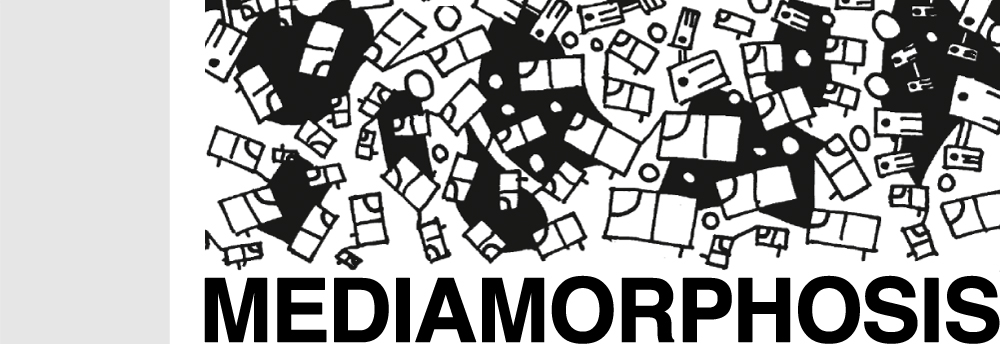
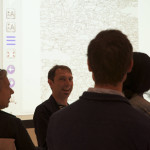
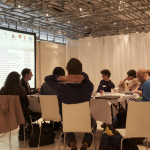
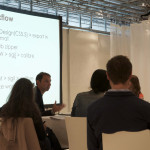
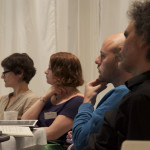
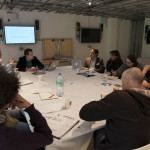
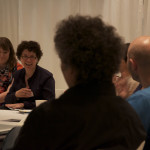
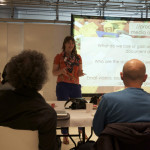
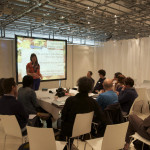
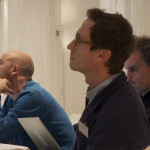
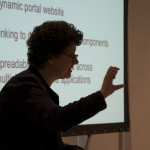
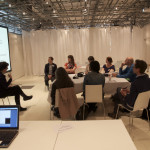
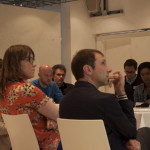
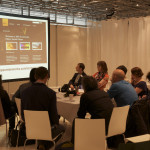
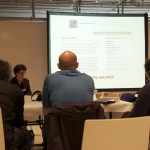
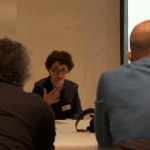
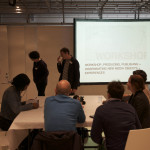
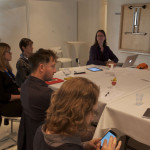
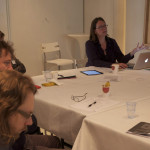
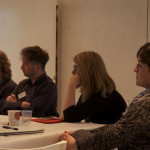
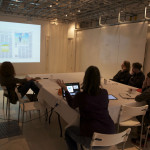
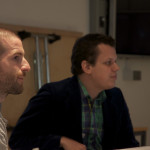
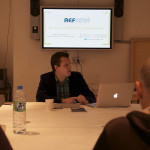
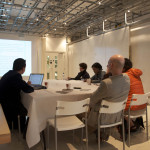
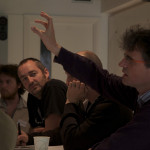
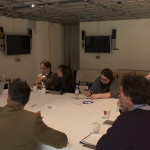
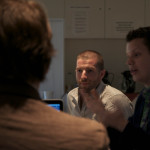
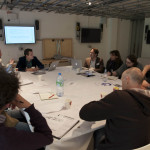
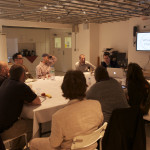
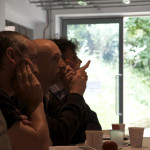
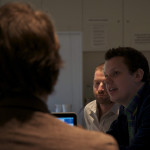
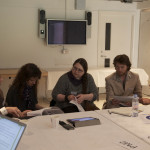
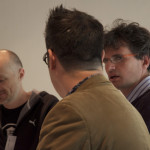
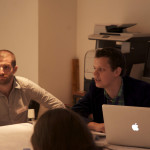
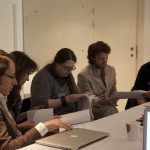
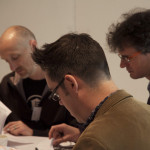
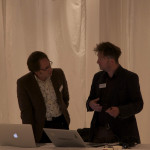
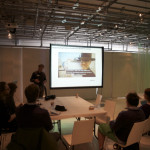
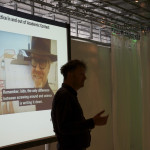
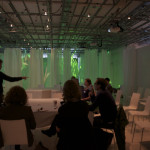
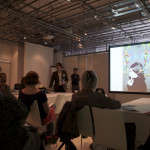
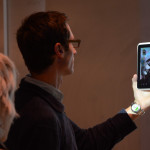
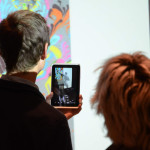
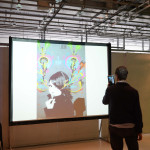
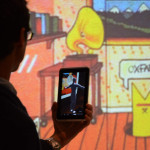
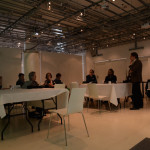
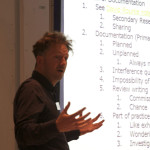
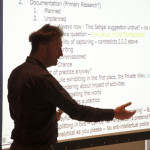
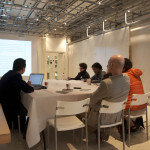
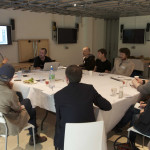
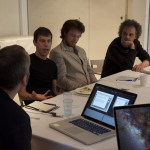
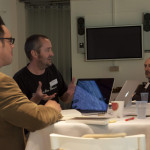
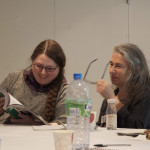
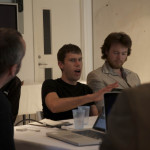
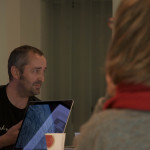
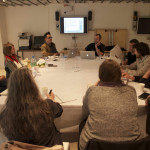
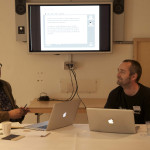
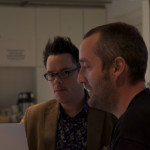
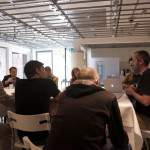
 RSS - Posts
RSS - Posts